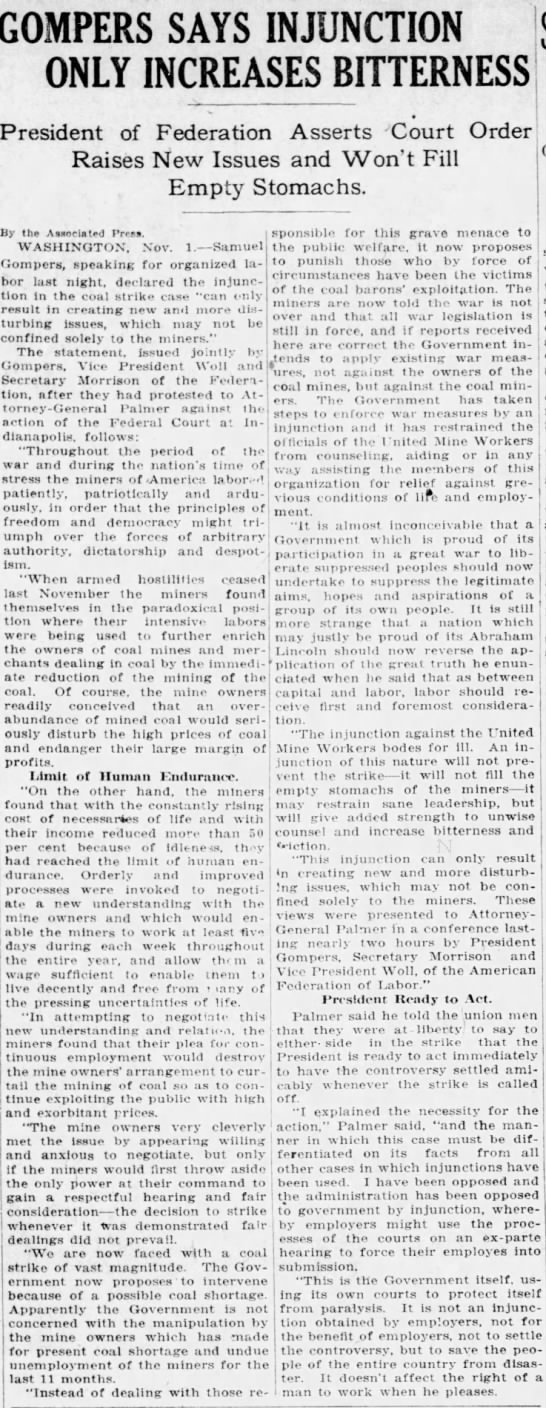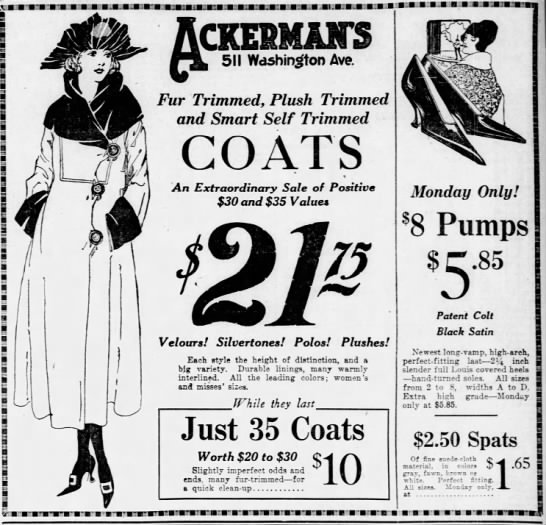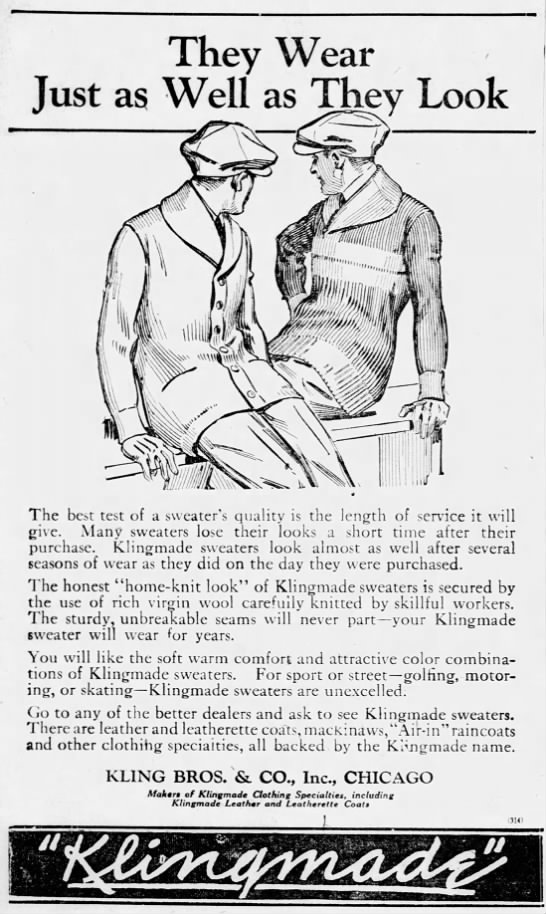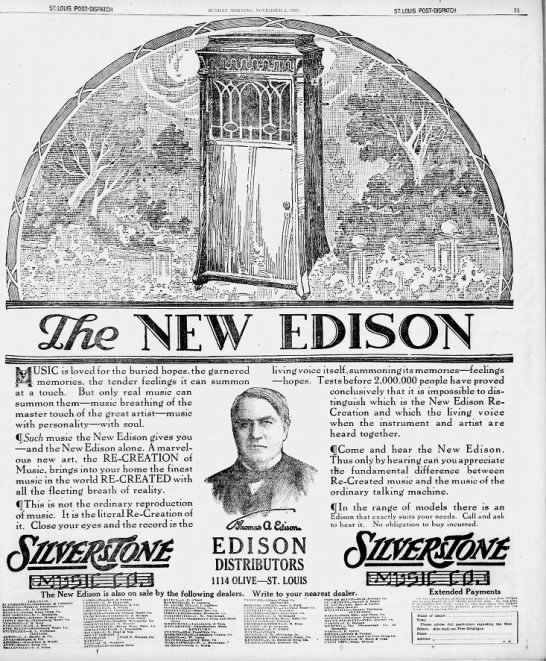 |
| Helen Korngold, December 1919, New York City |
October
Monday 27
Up & around
Tuesday 28
May get up tomorrow
Wednesday 29
Up & around quite a bit. I don’t like this housekeeping.
Thursday 30
Pop is much better
Friday 31
Up for the most part
November
Saturday 1
Junior Council meeting – Pop is all right. We went to grandma’s today.
Sunday 2
We all feel relieved Pop ate dinner with us.
*****
In the news:An army surplus store was opened in the city.
The coal workers have gone on strike and the newspapers report limited supplies at local dealers.

GOMPERS SAYS INJUNCTION ONLY INCREASES BITTERNESS President of Federation Asserts Court Order Raises New Issues and Won't Fill Empty Stomachs. By the Aneiated Press, WASHINGTON, Nov. 1.
Samuel Gompers, speaking for organized labor last night, declared the injunction in the coal strike case "can I'nly result in creating new and more disturbing issues, which may not be confined solely to the miners."
The statement, issued jointly by Gompers, Vice President Woll and Secretary Morrison of the Federation, after they had protested to Attorney-General Palmer against the-action of the Federal Court at Indianapolis, follows: "Throughout the period of the war and during the nation's time of stress the miners of America labored patiently, patriotically and arduously, in order that the principles of freedom and democracy might triumph over the forces of arbitrary authority, dictatorship and despotism.
"When armed hostilities ceased to undertake to suppress the legitimate last November the miners found themselves in the paradoxical position where their intensive labors were being used to further enrich the owners of coal mines and merchants dealing in coal by the immediate reduction of the mining of the coal."
Of course, the mine owners readily conceived that an overabundance of mined coal would seriously disturb the high prices of coal and endanger their large margin of profits.
On the other hand, the miners found that with the constantly rising cost of necessaries of life and with their income reduced more than 50 per cent because of idleness, they had reached the limit of human endurance.
Orderly and improved processes were invoked to negotiate a new understanding with the mine owners and which would enable the miners to work at least five days during each week throughout the entire year, and allow them a wage sufficient to enable them to live decently and free from any of the pressing uncertainties of life.
In attempting to negotiate this new understanding and relation, the miners found that their plea for continuous employment would destroy the mine owners' arrangement to curtail the mining of coal so as to continue exploiting the public with high and exorbitant prices.
The mine owners very cleverly met the Issue by appearing willing and anxious to negotiate, but only if the miners would first throw aside the only power at their command to gain a respectful hearing and fair consideration the decision to strike whenever it was demonstrated fair dealings did not prevail.
We are now faced with a coal strike of vast magnitude. The Government now proposes to intervene because of a possible coal shortage. Apparently, the Government is not concerned with the manipulation by the mine owners which has made for present coal shortage and undue unemployment of the miners for the last 11 months.
Instead of dealing with those responsible for this grave menace to the public welfare, it now proposes to punish those who by force of circumstances have been the victims of the coal barons' exploitation. The miners are now told the war is not over and that all war legislation is still in force, and if reports received here are correct the Government intends to apply existing war measures, not against the owners of the coal mines, but against the coal miners.
The Government has taken steps to enforce war measures by an injunction and it lias restrained the officials of the United Mine Workers from counseling, aiding or in any way assisting the members of this organization for relief against previous conditions of life and employment.
It is almost, inconceivable that a Government which is proud of its participation in a great war to liberate suppressed peoples should now undertake to suppress the legitimate aims, hopes, and aspirations of its own people. It is still more strange that a nation which may justly be proud of its Abraham Lincoln should now reverse the application of the great truth be enunciated when lie said that as between capital and labor, labor should receive first and foremost consideration.
The injunction against the United Mine Workers bodes for ill. An injunction of this nature will not prevent the strike, it will not fill the empty stomachs of the miners, it may restrain sane leadership, but will give added strength to unwise counsel and increase bitterness and friction. This injunction can only result n creating new and more disturbing issues, which may not be confined solely to the miners.
These views were presented to Attorney-General Palmer in a conference lasting nearly two hours by President Gompers. Secretary Morrison and Vice President Woll, of the American Federation of Labor.
Palmer said he told the union men that they were at liberty to say to either side in the strike that the President is ready to act immediately to have the controversy settled amicably whenever the strike is called off.
"I explained the necessity for the action," Palmer said, "and the manner in which this case must be differentiated on its facts from all other cases in which injunctions have been used. I have been opposed and the administration has been opposed to government by injunction, were by employers might use the processes of the courts on an ex-parte hearing to force their employees into submission.
This is the Government itself, using its own courts to protect itself from paralysis. It is not an injunction obtained by employers, not for the benefit of employers, not to settle the controversy, but to save the people of the entire country from disaster. It doesn't affect the right of a man to work when he pleases.
CLIPPED FROM
St. Louis Post-Dispatch
St. Louis, Missouri
01 Nov 1919, Sat • Page 2
 |
St. Louis Post-Dispatch, Nov. 2, 1919  St. Louis Post-Dispatch, Nov. 2, 1919 My husband owns this machine! |
No comments:
Post a Comment